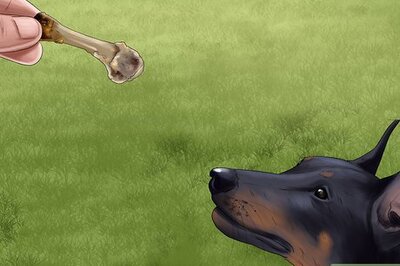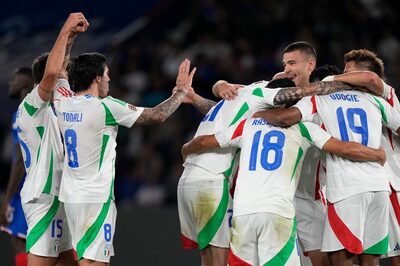
views
ABIDJAN: Ivory Coast citizens cast their ballots in a largely peaceful presidential vote on Saturday but opposition calls to disrupt or boycott the process caused pockets of unrest in a tense standoff over President Alassane Ouattara’s bid for a third term.
The streets of the largest city Abidjan were quiet and voting went smoothly in most districts, in contrast to the violent run-up to the election. The vote is seen as a test of stability in the West African nation, which has one of the continent’s fastest-growing economies.
“There was fear but it has not stopped us from coming out,” said businesswoman Djenebou Toure, sitting with friends outside a polling station in Adjame district.
But efforts to obstruct voting led to clashes and the vandalisation of polling stations in other parts of the country, although the opposition and the authorities gave differing accounts of the impact of the disruption.
“Apart from a few isolated places – a dozen or so – the vote is going well,” Ouattara told journalists as he voted in Abidjan.
Out of over 22,300 polling stations, 30-40 were vandalised, according to the electoral commission.
The opposition said whole swathes of the country had not participated in the vote or had been prevented from doing so. Candidate Pascal Affi N’Guessan said they estimated around 12 people had died as a result of the civil disobedience campaigns.
A police spokesman said there was no immediate information on the number of casualties. Clashes in the last 24 hours have caused at least one death, a police source said earlier.
Opponents of 78-year-old Ouattara say he is breaking the law by running again because the constitution limits presidents to two terms, and is jeopardising hard-earned economic gains in the country, the world’s top cocoa producer.
“Ivorians refused to join in with this farce of an election,” said N’Guessan, who called for the boycott along with fellow candidate, former president Henri Konan Bedie.
Ouattara says he can run again under a new constitution approved in 2016, and is doing so only because his handpicked successor died unexpectedly in July. He is seen as likely to win.
Polls closed as scheduled and vote-counting started soon after 6 p.m. (1800 GMT), according to Reuters witnesses in Abidjan.
Violence linked to the election has killed 30 people since August and brought back memories of the 2010 presidential vote, which unleashed a brief civil war killing 3,000 people after Ouattara’s predecessor Laurent Gbagbo refused to step down.
Critics call Ouattara’s candidacy a new blow to West African democracy following a military coup in Mali in August and a successful third-term bid this month by the president of Guinea, Alpha Conde.
(Additional reporting by Loucoumane Coulibaly; Writing by Aaron Ross and Alessandra Prentice; Editing by Edward McAllister, Ros Russell and Frances Kerry)
Disclaimer: This post has been auto-published from an agency feed without any modifications to the text and has not been reviewed by an editor
Read all the Latest News and Breaking News here




















Comments
0 comment